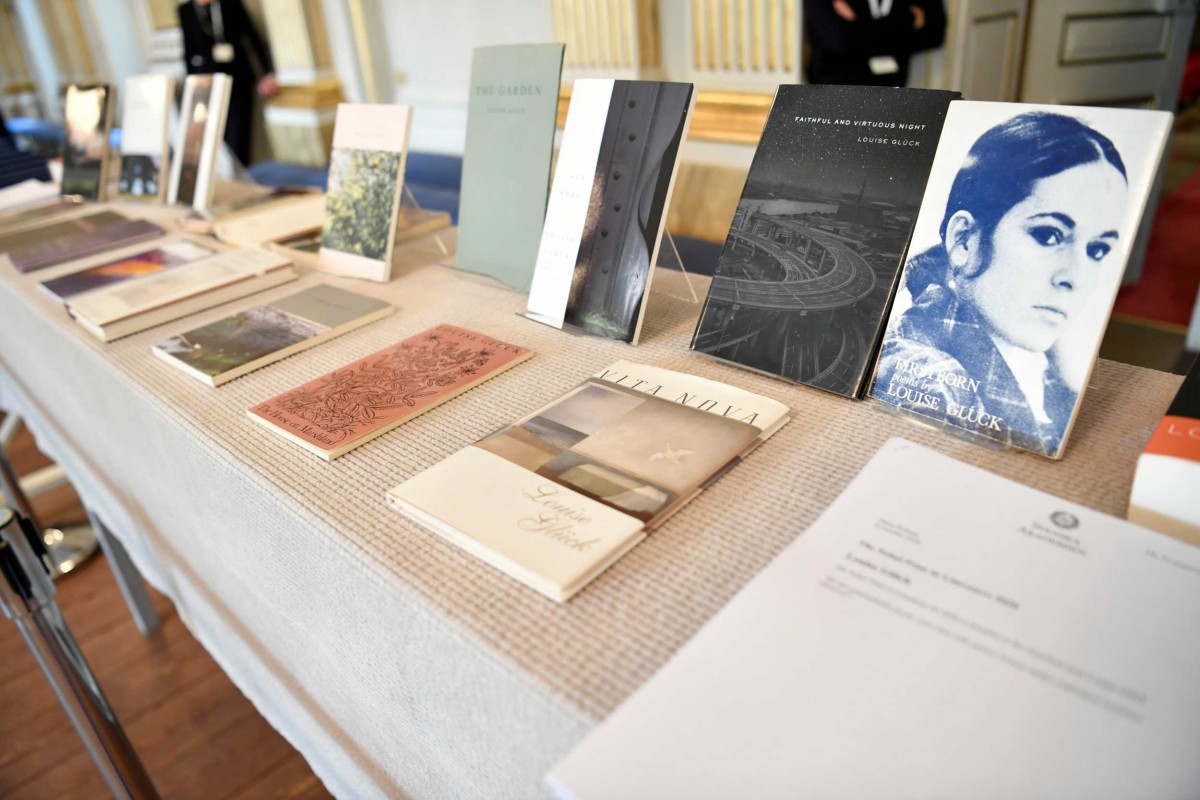South Korean writer Han Kang has won the 2024 Nobel Prize for Literature, “for her intense poetic prose that confronts historical traumas and exposes the fragility of human life”. The 53-year-old is the first South Korean writer to win the prize and only the 18th woman (of 121 winners to date). She is also a musician, and interested in visual art.
Her best known novel, The Vegetarian (published in Korea in 2007), was her first to be translated into English, in 2015. It won the Man Booker International Prize in 2016, with the prize split between Han Kang and her translator, Deborah Smith.
At the time, Smith’s translation sparked fervid debates about its accuracy. But this is the beauty of literary translation as an act of creation: it’s an imaginative exercise, not a literal one, and Han Kang has stood by her translator.
Han Kang has published six works in English so far. The Vegetarian was her international breakout. Then there was Human Acts, The White Book, Europa and Greek Lessons. The short work Convalescence was published in a bilingual edition in 2013.
Her latest novel We Do Not Part, about a writer researching the 1948-49 Jeju uprising (against the Cold War division of the Korean peninsula) and its impact on the family of her friend will be published in 2025.
Taking up space in the world

Han Kang
The Vegetarian
2015
A macabre tale of daily brutality, The Vegetarian is a novel in three acts, and follows the choice of a “completely unremarkable” woman to give up meat, triggering a spiral of unprecedented abuse from family members. While they claim to be thinking of her health, actually they oppose her non-conformism. Eventually, considering herself to be a plant, she refuses any nourishment apart from water and the sun’s rays.
The Nobel committee praised Han’s “physical empathy for the vulnerable, often female lives” of her characters.
Greek Lessons is narrated by a woman who has lost her mother, her son (to the custody of his father) and is losing her ability to speak, and a man who is losing his connection to place and family, and his eyesight. The man teaches ancient Greek; the woman becomes his student.
Like much of Han Kang’s other work, Greek Lessons explores, through evocative and laconic prose, the fragile and unstable space between what can be expressed and shared, and what remains incommunicable, beyond the possibility of words. It shows the power of the human search for connection: even among, or perhaps because of, grief and loss.
Reviewing Greek Lessons, The Guardian concluded: “thank goodness Han Kang’s literary voice takes up space in the world in the way her female characters struggle to”.
The autobiographical The White Book – dazzling, touching and at times mystical – was shortlisted for the Man Booker International Prize in 2018. It is an art book, an extended poem and a graphically white book about all things white.
The book begins laconically: “In the spring, when I decided to write about white things, the first thing I did was to make a list.”
Swaddling bands
Newborn gown
Salt
Snow
Ice
Moon
Rice
Waves
Yulan
White bird
“Laughing whitely”
Blank paper
White dog
White hair
Shroud
From this list of objects unfolds the autobiographical story of the loss of a newborn sister (who died after just two hours in the world), years before the author’s birth. There is a chorus of voices, but at times the writer herself implores and questions the sister she has never met.
Han Kang composes this meditative, transcendental book while on a writers’ residency in Warsaw. The white of the snow mixes with the white of memory.
Writing becomes a purifying act: reconstructing her sister’s death means starting to live. The resulting reflections follow the rhythm of prayer, perhaps a secular, yet deeply human prayer. The only way to mourn, and at the same time continue to live ethically, is the flash of memory, in its endless fragments.
A nation’s mourning

Han Kang
Human Acts
2014
In Human Acts, this autobiographical mourning becomes the mourning of an entire nation.
Human Acts narrates the massacre in Gwangju, Kang’s birthplace, of May 1980, when hundreds, perhaps thousands, of citizens and university students, protesting against the authoritarian regime of South Korea’s “most vilified” military dictator, Chun Doo-Hwan, were murdered by the army.
Paradoxically, precisely in the midst of these brutal acts what is most valuable emerges: solidarity, dignity, the strength to continue – and above all, the great responsibility of surviving and remembering.
“My novels explore human suffering,” Han Kang once said. When she wrote about the Gwangju massacre, she was “aware that readers should, in turn, be prepared […] to experience such suffering firsthand themselves”.
The ethical scope of the novel counteracts the collective amnesia imposed by censorship. It makes room for a chorale – a sacred song – in which the living are confused with the dead, the present with the past, memory with censorship, the word with the ineffability of a violence that is supposedly inhuman. Could surviving perhaps be a form of silent consent?
But as in The White Book, the silence crumbles in the writing, becoming too loud to bear. The role of the writer is to continue to create, remember, communicate even the incommunicable, despite it all. Even in shreds. Even silence. Even when humanity seems to fail us.
For this – and much more – Han Kang richly deserves this year’s Nobel Prize for Literature.![]()
Valentina Gosetti, Associate Professor in French, University of New England.
This article is republished from The Conversation under a Creative Commons license. Read the original article.













